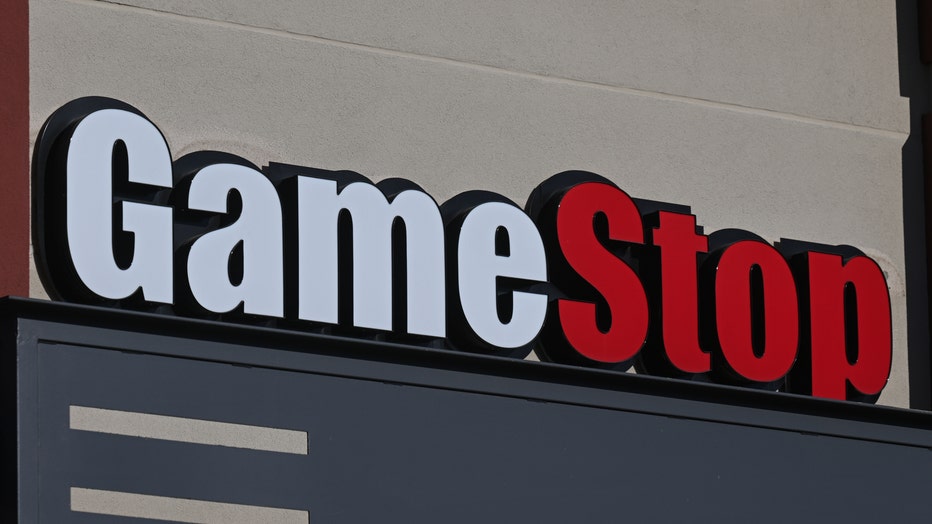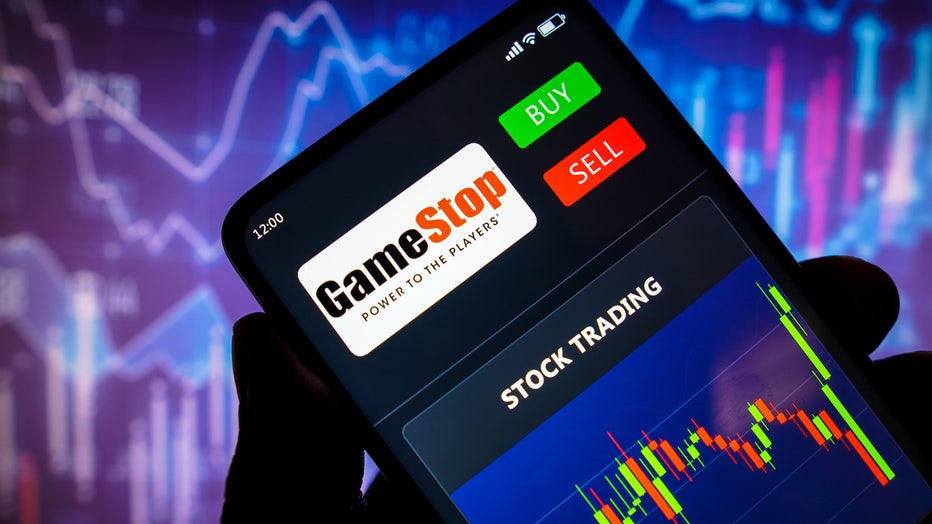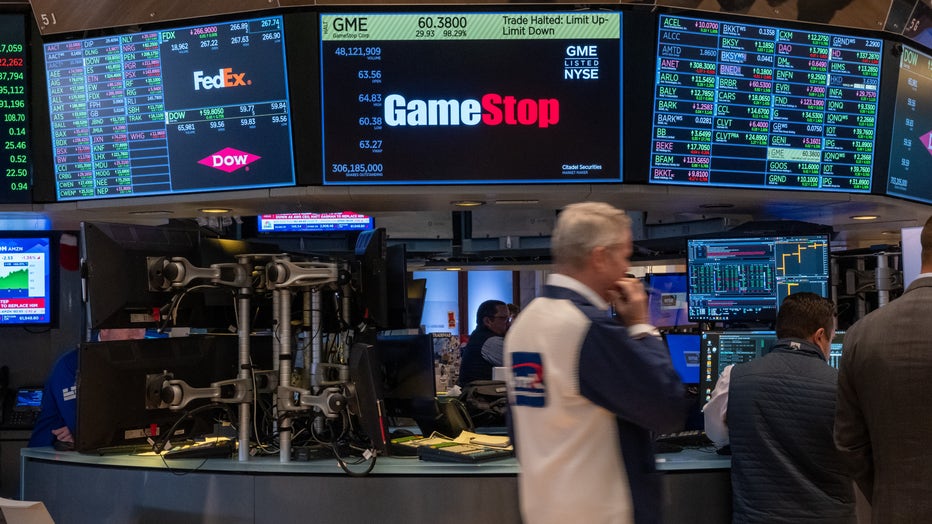Meme stocks like GameStop are once again in the news, and here's why
PHOENIX - Remember GameStop?
Back in 2021, the retailer's stock rose from $18 to a high of $380 at one point. The stock has been rather quiet since then, with per-share prices at around the $10 to $11 mark before rising to $64.83 on the morning of May 14, according to Google Finance.
So, what's driving this so-called 'meme stock' to rise once again? Here's what we know.
What's GameStop?

Logo of GameStop (Photo by Artur Widak/NurPhoto via Getty Images)
The BBC described GameStop as an American retail business that sells games, consoles, and other electronics.
"The sort of thing you'd find between a doughnut shop and a makeup retailer in an American mall," the article states.
In their report, the AP stated that GameStop was struggling to survive in 2021, as consumers switched from discs to digital downloads.
You said GameStop is a 'meme stock.' What's that?
A 2024 article on Encyclopedia Britannica describes meme stocks as a stock whose share price is driven by internet culture.
"As a concept, they’ve only been around for a few years, but meme stocks have caused plenty of excitement—and, at times, pain—for active traders and everyday investors who get caught up in the frenzy," a portion of the article read.
GameStop, along with AMC, Blackberry, Nokia, and Reddit, were listed as meme stocks in the article.
What happened to meme stocks in 2021?

(Photo Illustration by Rafael Henrique/SOPA Images/LightRocket via Getty Images)
In 2021, Big Wall Street hedge funds and major investors were betting against stocks like GameStop, or shorting its stock, because they believed that shares would continue on a drastically downward trend.
Keith Gill, along with those who agreed with him changed the trajectory of a company that appeared to be heading for bankruptcy at the time by buying up thousands of GameStop shares in the face of almost any accepted metrics that told investors that the company was in serious trouble.
That began what is known as a "short squeeze," when those big investors that had bet against GameStop were forced to buy its rapidly rising stock to offset their massive losses. Citron Research, Melvin Capital and other well-known hedge funds lost an estimated $5 billion, according to analytics firm S3 Partners.
The incident put securities markets' capacity and resilience to a test that "few could have anticipated," the staff of the U.S. Securities and Exchange Commission said in a report later that year.
What's happening to GameStop now?
On May 12, Gill, who is better known as ‘Roaring Kitty,’ posted an image on the social platform X (formerly Twitter) of a man sitting forward in his chair, a meme used by gamers when things are getting serious. Gill is noted to be at the center of the pandemic meme stock craze.
A burst of momentum brought on by buyers resulted in an increase in prices. Shares of GameStop were nearly 37% higher on Tuesday afternoon, after surging 74% the day before. Prices were swinging so sharply after the opening bell Monday, that trading in the stock was halted nine times in just over an hour.
Other meme stocks from the pandemic era are moving just as radically. AMC jumped nearly 31% Tuesday, and its trading was halted 18 times by early afternoon.
What makes this recent rally different from 2021's?
The AP noted that this recent meme stock rally is not as big.
On Monday, investors pumped a net $15.8 million into GameStop, along with $37.5 million into AMC, according to data from Vanda Research. That compares with $87.5 million and $170 million, respectively, in 2021.
In addition, meme-stock companies have more shares trading in the market than they did in 2021, which could lessen the chances of a short squeeze, according to Nick Battista, director of market intelligence at tastylive, a streaming network geared toward options traders.
GameStop in March had roughly 305.9 million shares of its stock trading in the market, more than four times the number of shares it had in March 2021. Such growth "greatly increases the amount of activity needed to squeeze higher" for GameStop and other meme stocks, Battista said. "Can they move higher? Sure, but it’s going to be a tougher task this time around."
So, should I buy meme stocks?

Traders walk the floor during morning trading at the New York Stock Exchange (NYSE) in New York City. (Photo by Spencer Platt/Getty Images)
There are risks in buying stocks, and there may be additional risks in buying meme stocks.
For one, share prices rise and fall periodically, and in the case of meme stocks, prices could fail to achieve the high it eco did. For example, it took just four weeks in 2021 for GameStop's stock to go from less than $5 to more than $120, but it has yet to touch that price again.
As for AMC, after briefly reaching $390 during the summer of 2021, shares for the company were drifting below $3 last week.
Meanwhile, the Encyclopedia Britannica noted that buying meme stocks is not considered to be investing.
"It’s trading, and it closely resembles gambling from multiple angles," the article reads.
They state that meme stocks have share prices that are disconnected from the company's fundamentals, and since price performance may depend on investor sentiment, a meme stock that booms on social media can also go bust on social media, and quickly so.
Still, the website Investopedia states that "dominated by younger investors, meme stocks are still seen as a way to generate outsized returns in a short period, especially in the face of rising housing costs and inflation in general."
This website does not provide financial advice. The information provided above is meant to be informative, and nothing on this site should be considered as a substitute for professional financial advice. Please seek appropriate financial advice from a professional financial advisor in your area.
(The Associated Press contributed to this report.)

